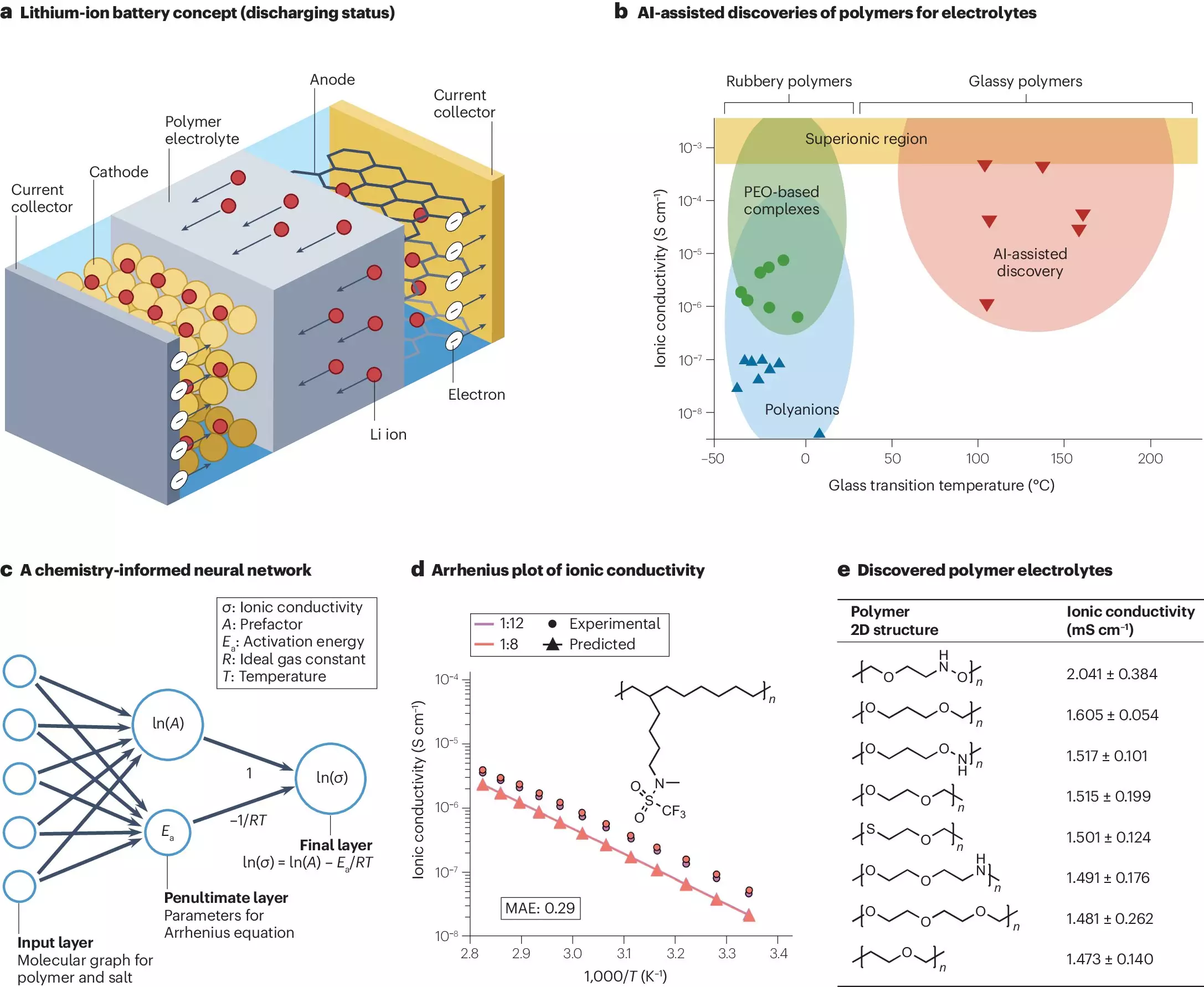Polymers have emerged as a cornerstone of modern technology, manifesting their presence in everyday items and crucial industrial applications. From the non-stick surface of Teflon-coated cookware to the lightweight yet tough materials like Kevlar utilized in personal protective gear, these versatile compounds play a monumental role in enhancing performance and functionality across varied sectors. As society progresses, the need for innovative polymer solutions becomes ever more pressing, particularly in areas such as sustainable energy, advanced filtration, and recyclability. Driven by these challenges, researchers are increasingly turning to modern technologies and methodologies, notably artificial intelligence (AI), to spearhead the next wave of breakthroughs in polymer science.
At Georgia Tech, researchers led by Rampi Ramprasad are pioneering the integration of AI into polymer research, thereby transforming how new materials are developed and optimized. Recent publications in prestigious journals such as *Nature* underscore the remarkable strides made through AI-driven polymer informatics research. The initial study highlights ongoing advancements in polymer design, particularly in crucial sectors like energy storage, filtration systems, and recyclable plastics. Meanwhile, a second study clarifies the application of AI in successfully discovering new polymers tailored for electrostatic energy storage, which have been synthesized and validated in laboratory tests.
Ramprasad emphasized that while the initial forays into AI within material science have yielded many insights, tangible, real-world results arrived more recently. He cites the White House’s Materials Genome Initiative, which previously laid the groundwork for melding AI with materials research, as a turning point. Today, the integration of AI is not just about theoretical exploration but leads to tangible innovations capable of reshaping the industrial landscape.
The potent mix of machine learning (ML) and AI is reshaping how researchers approach the complex task of polymer development. Ramprasad’s team has crafted cutting-edge algorithms that allow for the accurate prediction of material properties prior to their physical synthesis. The journey begins by defining specific performance targets aligned with application needs. By harnessing existing datasets of material properties, machine learning models are trained to forecast desired outcomes. The result? An ability to not only predict which polymers will meet performance metrics but also to create potential new polymers that are sound from a chemical synthesis viewpoint.
After the AI identifies promising candidates, these materials are synthesized and subjected to rigorous real-world testing. Intriguingly, the process does not end at laboratory experiments. Any new discoveries are fed back into the initial datasets, allowing for a dynamic, iterative refinement of the AI models. This virtuous cycle of data integration and model enhancement demonstrates the significant potential of AI in refining polymer research and development.
Despite the palpable excitement surrounding AI in polymer science, it is essential to recognize the unique challenges it presents. The efficacy of AI predictions hinges on the availability of diverse and comprehensive datasets. Consequently, researchers must prioritize gathering high-quality, relevant data—a process that can be resource-intensive and time-consuming. Furthermore, developing algorithms capable of generating chemically viable polymers demands an intricate understanding of synthetic pathways—a task that is far from straightforward.
Once an algorithm identifies a potential new material, the challenge shifts to practical validation. It is crucial not only to confirm that the synthesized polymers perform as expected but also to ensure they can be scaled for real-world applications, a step often fraught with complications.
The collaborative nature of modern polymer research is underscored by the partnerships formed across multiple academic institutions and industries. For instance, Professor Ryan Lively’s collaborations with Ramprasad have notably accelerated the research process by employing AI-driven models to explore new possibilities quickly. This synergy is essential, as it allows teams to probe innovative ideas before committing substantial time and funding to experimental validation.
Moreover, the advancements in polymer technology have significant implications across numerous sectors, such as energy, where new capacitor designs can store electrostatic energy more efficiently—an essential component amid the growing demand for energy storage technologies in electric vehicles and other applications.
The integration of AI into polymer research signals a paradigm shift that promises to usher in a new era of material discovery and application. As more industries recognize the value of this approach, collaborations are likely to deepen, fostering innovative solutions to global challenges. Companies are already leveraging AI-assisted polymer informatics tools to streamline material design processes, indicating a robust interest in translating research into practical applications.
With venture initiatives like Matmerize Inc., spun out from Georgia Tech, the commercial landscape for AI-enhanced materials technology is evolving rapidly. Equipped with advanced software and algorithms, textiles, sustainable materials, and electronics sectors are just a few examples of fields that stand to benefit. As AI continues to shape polymer science, the roadmap ahead is filled with promise, innovation, and the potential to tackle the material challenges of tomorrow.


Leave a Reply